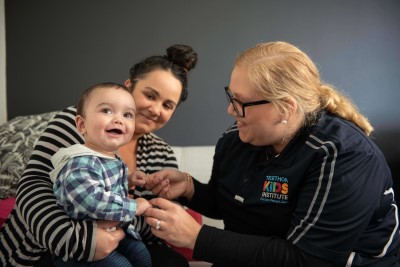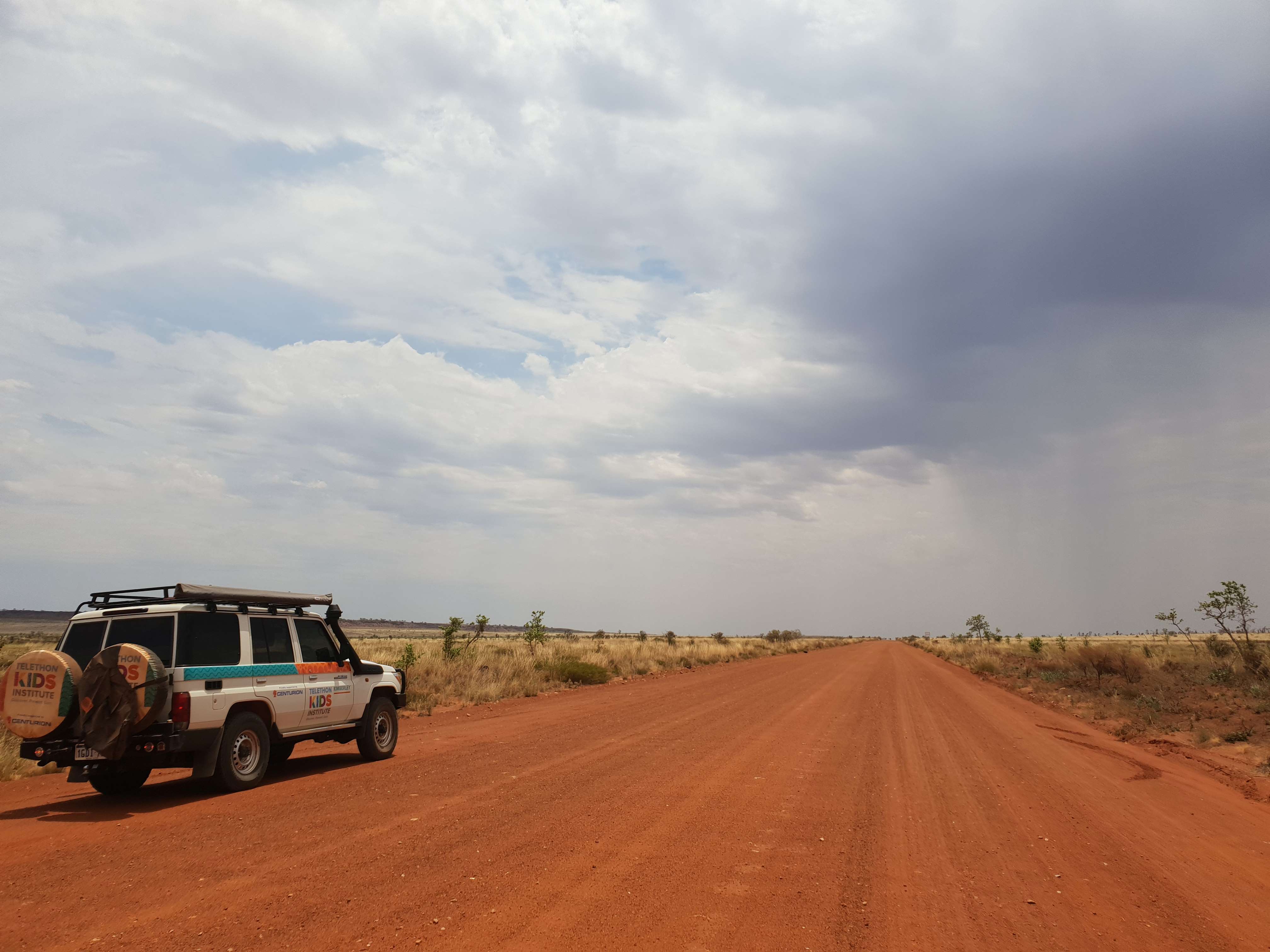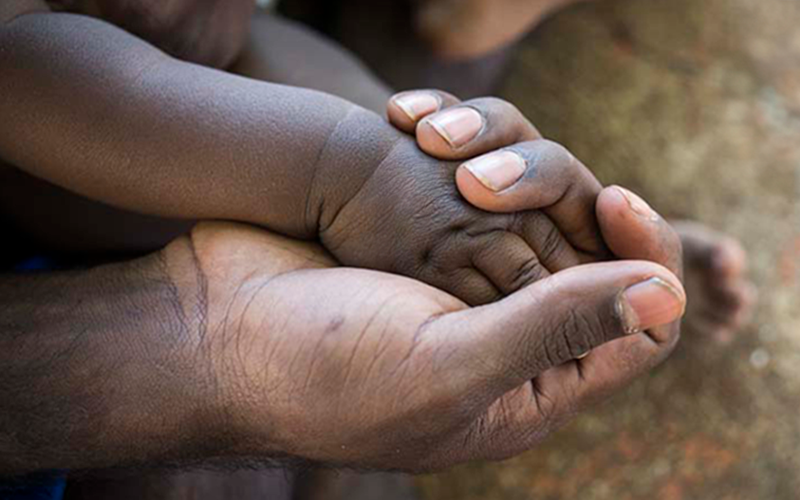Search
Research
Statistical considerations for the platform trial in COVID-19 vaccine priming and boostingThe Platform trial In COVID-19 priming and BOOsting (PICOBOO) is a multi-site, adaptive platform trial designed to generate evidence of the immunogenicity, reactogenicity, and cross-protection of different booster vaccination strategies against severe acute respiratory syndrome coronavirus 2 and its variants, specific for the Australian context.

News & Events
Perth’s Aboriginal babies show first signs of ear disease at just eight weeksThe Kids Research Institute Australia researchers have found close to 40 per cent of Aboriginal babies begin to develop middle ear infections between two and four months of age in a first of its kind study in metropolitan Perth.

News & Events
Landmark study halves skin infections in remote Aboriginal kidsLed by The Kids Research Institute Australia and Aboriginal health organisations in close partnership with nine Aboriginal communities in Western Australia’s Kimberley region, the five-year SToP Trial set out to identify the best possible methods to See, Treat and Prevent painful skin sores and scabies.

News & Events
RSV rates skyrocket among Aboriginal babiesExperts are warning Aboriginal parents in Western Australia with newborn babies to be vigilant about Respiratory Syncytial Virus (RSV) as winter progresses.

News & Events
Deborah Lehmann Research Award OpportunityThe Deborah Lehmann Research Award in Paediatric Infectious Disease Research is a funding mechanism to support the training and development of early- to mid-career researchers (EMCR) or Higher Degree by Research (HDR) students who are nationals from the Pacific Region working in or outside their hom
Research
DNA Methylation signatures underpinning blood neutrophil to lymphocyte ratio during first week of human lifeUnderstanding of newborn immune ontogeny in the first week of life will enable age-appropriate strategies for safeguarding vulnerable newborns against infectious diseases. Here we conducted an observational study exploring the immunological profile of infants longitudinally throughout their first week of life.
Research
HipHop2SToP a community-led health promotion initiative empowering Aboriginal youth in the Kimberley region of Western Australia: a process evaluationFor millennia, Aboriginal people's ways of knowing, doing and being were shared through art, song, and dance. Colonisation silenced these ways, affecting loss of self-determination for Aboriginal people. Over the past decade in Australia, hip-hop projects have become culturally appropriate approaches for health promotion.
Research
Impaired interferon response in plasmacytoid dendritic cells from children with persistent wheezeImpaired interferon response and allergic sensitization may contribute to virus-induced wheeze and asthma development in young children. Plasmacytoid dendritic cells play a key role in antiviral immunity as critical producers of type I interferons.
Research
Serological Responses to Streptococcus pyogenes Vaccine Candidate Antigens Suggests That Streptococcus dysgalactiae Is the Predominant Cause of Lower Limb CellulitisA future Streptococcus pyogenes (Strep A) vaccine will ideally prevent a significant burden of lower limb cellulitis; however, natural immune responses to proposed vaccine antigens following an episode of cellulitis remain uncharacterized.
Research
Rationale for use for monoclonal antibody and anti-cytokine therapy for multisystem inflammatory syndrome in children: A systematic reviewObjective: To review systematically the rationale for choice and use of monoclonal antibody and anti-cytokine therapy in multisystem inflammatory syndrome in children.
